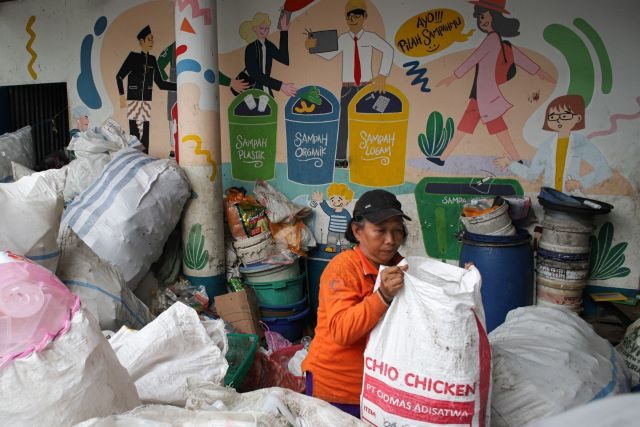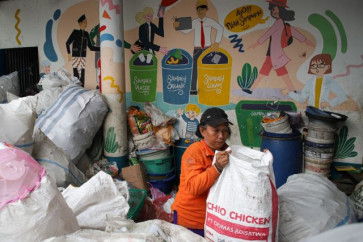Popular Reads
Top Results
Can't find what you're looking for?
View all search resultsPopular Reads
Top Results
Can't find what you're looking for?
View all search resultsManaging waste management business
In terms of waste management, according to a Kompas survey, only 15 percent of the community consider waste reduction and sorting practices as part of their daily behavior.
Change text size
Gift Premium Articles
to Anyone
T
he increase in mass media publications on waste management indicates that waste is a strategic issue because it involves the environment's carrying capacity. Neglect in waste management has risen the alarm to the public to become more aware of the negative impacts that will arise.
More than just throwing trash in its place is required. In another sense, we need more comprehensive efforts to manage waste in a measurable, recorded and targeted manner.
Law No.18/2008 concerning waste management defines the Final Processing Site (TPA) as an area that is crucial for the sustainability of human life and environmental sustainability. Even though this definition has placed the precautionary principle in waste processing, not all landfills have good governance.
The sight of piles of garbage and lines of garbage trucks along the TPA has become common. If these conditions become the norm, they will have great potential to disrupt environmental sustainability and human well-being.
The Kompas research arm’s survey of 504 respondents in September 2022 recorded the waste managing behavior of respondents in their daily habits. From these data, most respondents had confidence that there would be a good impact on the environment and life if they implemented a zero-waste lifestyle, with 21.3 percent said they were very sure and 59.3 percent sure.
However, the magnitude of people's beliefs is different from their daily behavior. In the survey, most people knew and were aware of reducing waste, such as consuming enough food, carrying reusable bottles of drinking water, using unused items, using reusable shopping bags and minimizing the purchase of new clothes. However, according to the Kompas survey, only 15 percent of the community applied it as part of their daily behavior.
The survey has shown that there is still a discrepancy between awareness, behavior and targets stipulated in Presidential Regulation No.97/2017 concerning the national policy and strategy for waste management. Based on the presidential regulation, overall waste reduction is targeted at 30 percent, while the waste-handling target is 70 percent of the waste generation rate.



















